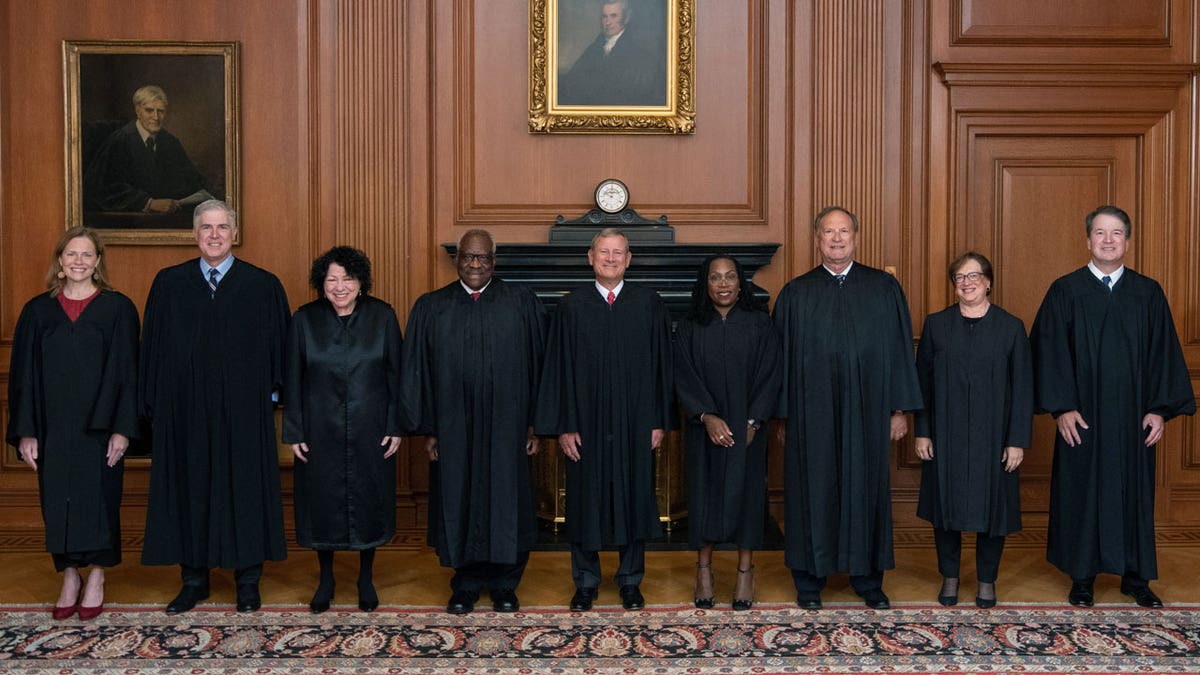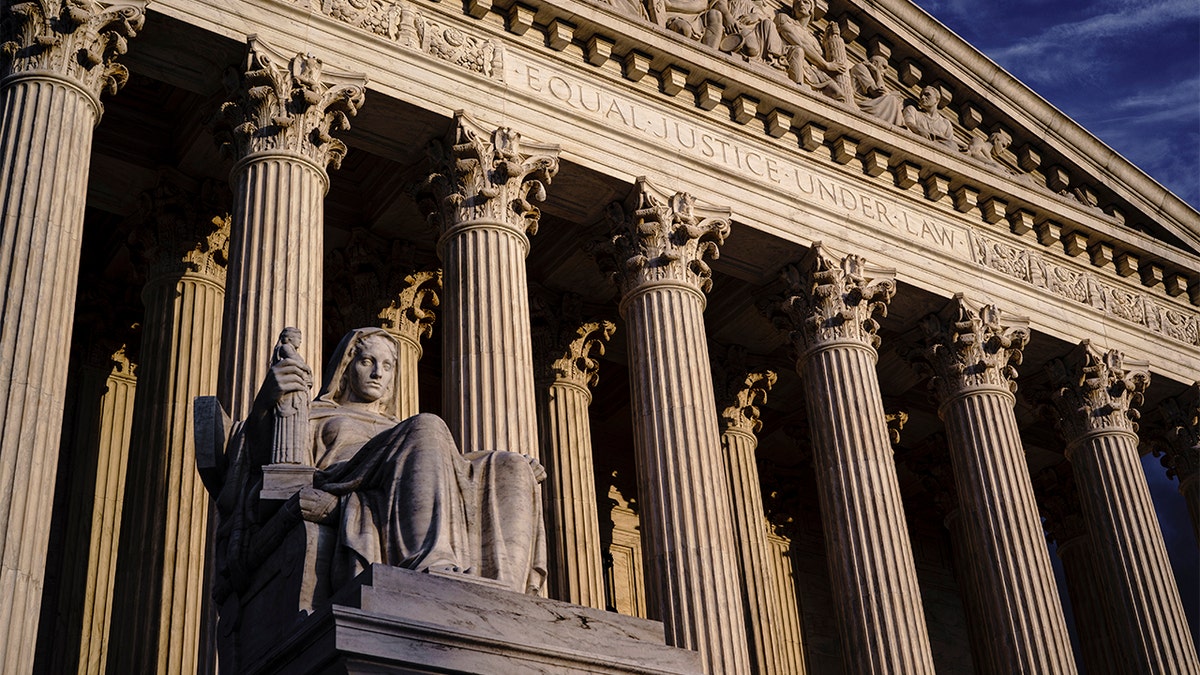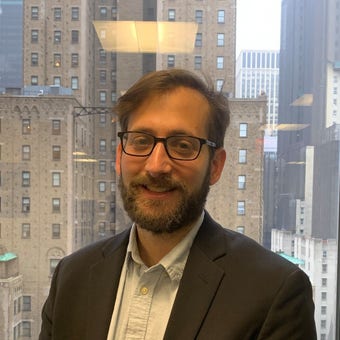Fox News Flash top headlines for October 4
Fox News Flash top headlines are here. Check out what's clicking on Foxnews.com.
On Monday, the Supreme Court returned for its 2022-23 term amidst a political landscape that has changed significantly in the aftermath of Dobbs.
As two "pro-choice" Americans, we were outraged by the Court’s decision to overturn Roe v. Wade and will be watching the Court closely in the coming year for other consequential decisions. However, on the issue of abortion, our journey with fertility has made our emotions a bit more complicated.
In what can only be described as a miracle, Katherine is pregnant. More than two years ago, Katherine had a miscarriage that had occurred in the late first trimester but was not detected until her anatomy scan at 20 weeks, due to changes in frequency of ultrasounds at the start of the pandemic.
NEWSOM MOVES TO MAKE CALIFORNIA A SANCTUARY STATE FOR ABORTIONS
She underwent a dilation and curettage (D&C) procedure, but it was later discovered that she had retained placenta, which required another D&C. And ultimately, it was determined that because of these procedures, she suffered a rare complication leaving her uterus scarred. She was advised that it would be unlikely for her to get pregnant or stay pregnant.
In some ways, our experience has made us understand how someone could be "pro-life," treasuring the fetus above all else. At Katherine’s recent ten-week ultrasound, Danny started crying when he saw what looked like a fully-formed-but-tiny baby with fingers and toes; it truly seemed like a miracle. And we certainly can understand the grief of losing a fetus, a loss that felt just as real as losing a child to us.
So how can we be so upset about the Supreme Court overturning Roe when we are in the midst of a pregnancy that we so desperately want? How can we be so livid about the Court’s opinion when the prospect of Katherine never being able to bear children has been so devastating? Indeed, our experience has highlighted just how terrible it would be to have to terminate a pregnancy.

In this handout provided by the Collection of the Supreme Court of the United States, Members of the Supreme Court (L-R) Associate Justices Amy Coney Barrett, Neil M. Gorsuch, Sonia Sotomayor, and Clarence Thomas, Chief Justice John G. Roberts, Jr., and Associate Justices Ketanji Brown Jackson, Samuel A. Alito, Jr., Elena Kagan, and Brett M. Kavanaugh pose in the Justices Conference Room prior to the formal investiture ceremony of Associate Justice Ketanji Brown Jackson September 30, 2022 in Washington, D.C. (Collection of the Supreme Court of the United States via Getty Images)
However, overturning Roe v Wade will lead to more women experiencing similar complications that Katherine had, possibly preventing them from ever having children. Katherine received her medical care in Pennsylvania, a state where Republicans are now attempting to pass a constitutional amendment that could lead to an abortion ban in the state.
ABORTION-RIGHTS GROUP LEADER OFFERS SUPPORT TO NORTH CAROLINA CANDIDATES
Had a ban been in place a few years ago, Katherine’s doctors may not have felt comfortable performing a D&C at 20 weeks or removing the retained placenta. This may have led to life-threatening complications involving infection or massive bleeding, or permanent reproductive consequences. Not only might our miracle baby not have come to be, but Katherine’s life could have been at risk.
The chilling effect of abortion bans on doctors is not mere speculation. In fact, this has already been happening, even before Roe was overturned. In Texas, because of Senate Bill 8, a woman who had a miscarriage at 9. 5 weeks was forced to carry the fetal remains for weeks. Her initial doctor did not want to perform the D&C and asked her "try to miscarry at home."
WE'RE TWO PRO-LIFE WOMEN WHO SAY 'NO' TO PROSECUTING WOMEN FOR ABORTIONS
In Wisconsin, after Roe was overturned, a hospital refused to provide treatment to a woman who was bleeding because of a miscarriage. They told her that "they couldn’t do a D&C because of the laws."

The Supreme Court in Washington, D.C. (AP Photo/J. Scott Applewhite, File)
And these are not just isolated incidents. According to Washington Post reporting: "...the standard of care for incomplete miscarriages, ectopic pregnancies and other common complications is being scrutinized, delayed — even denied — jeopardizing maternal health…"
CLICK HERE TO GET THE OPINION NEWSLETTER
Indeed, while those who are anti-abortion may call abortion a tragedy, is it not a tragedy to force a woman to carry a fetus that has no heartbeat? Is it not a tragedy to force a woman who finds out at her 20 week anatomy scan that her child will have serious birth defects that will not be compatible with life, to carry the pregnancy to term?
Not only would these situations cause emotional torture but could also have longstanding reproductive and mental health consequences. And of course, this is only one small facet of the tragic consequences of these abortion bans that make a mockery of the state’s charge to protect its citizens through appropriate public health measures.
Even if these scenarios and the other most extreme consequences of these bans were properly addressed, we would still not support laws prohibiting abortion.
CLICK HERE TO GET THE FOX NEWS APP
Our experience over these last few years with grief, infertility, and pregnancy has led us to grapple with issues that are deeply personal, spiritual, and even religious. But as traumatic as this has been, we were blessed to be able to process it on our own terms and with all of the medical options available to us.
What the Supreme Court has done is to impose its perspective on matters that are just as personal, spiritual, and religious on the rest of the country, and in the process, rob people of the ability to figure out their lives and their futures for themselves.
Katherine Hamilton is a neurologist. She and her husband live in Washington, D.C.










































